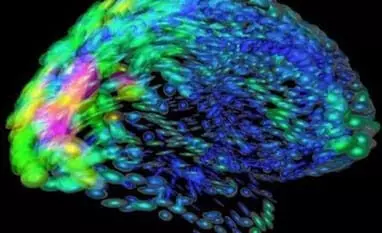
Treating schizophrenia, autism in young adults most effective: Study
text_fieldsNew Delhi: A recent study suggests that long-lasting treatment for neuropsychiatric illnesses including schizophrenia and autism may include targeting and stimulating dopamine system neurons that are underactive and raising their activity in young adults.
Researchers from the University of Rochester in the US discovered that stimulating the dopamine-supplying neuron cells in the frontal cortex of mice improved the circuit and corrected structural flaws in the brain that cause long-term symptoms, PTI reported.
In previous studies, the research team had found this specific arm of the dopamine system to be flexible in adolescents but not in adults.
In this study, published in the journal eLife, they exploited this window for plasticity in the system as an opportunity for therapeutic intervention, the effects of which could affect the brain circuitry into adulthood.
Essential in higher cognitive processing and decision-making, dysfunction of the dopamine system has been found to often begin in young adulthood.
"Brain development is a lengthy process, and many neuronal systems have critical windows - key times when brain areas are malleable and undergoing final maturation steps," said Rianne Stowell, a postdoctoral fellow in the Wang Lab at the University of Rochester Medical Center and co-first author on the research.
"By identifying these windows, we can target interventions to these time periods and possibly change the course of a disease by rescuing the structural and behavioural deficits caused by these disorders," said Stowell.
"If we can target the right windows in development and understand the signals at play, we can develop treatments that change the course of these brain disorders," said Stowell.






















